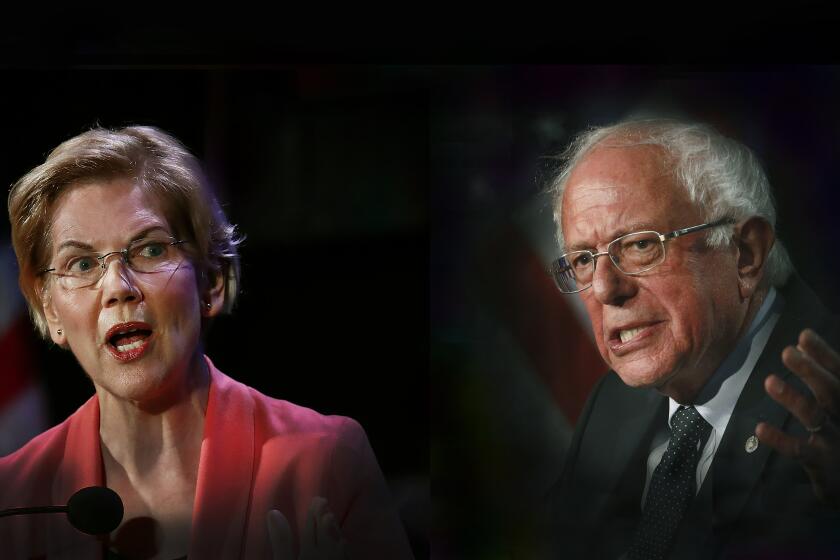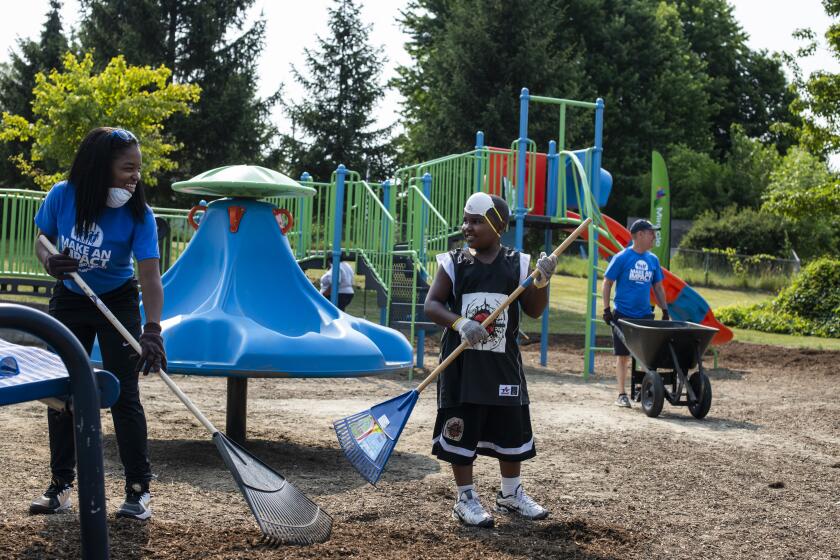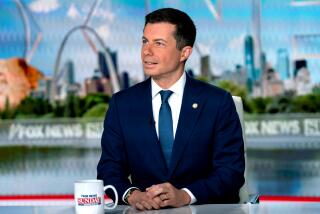Democratic debate in Detroit: 7 things to watch for on Night 1
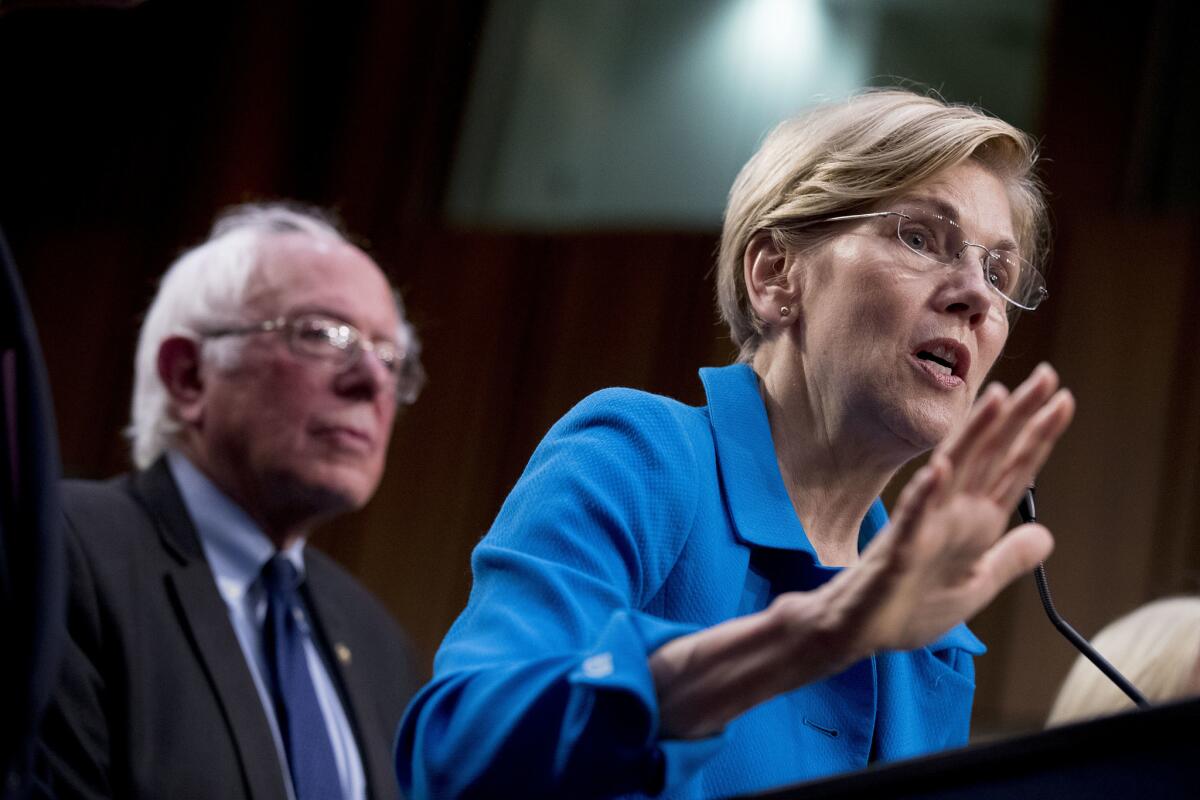
- Share via
It’s a showdown of the Democratic presidential primary field’s top progressives Tuesday night as Sens. Bernie Sanders of Vermont and Elizabeth Warren of Massachusetts headline the first night of this week’s debate in Detroit, which is being televised by CNN.
The format is similar to last month’s opening debate, featuring 10 Democrats on stage per night.
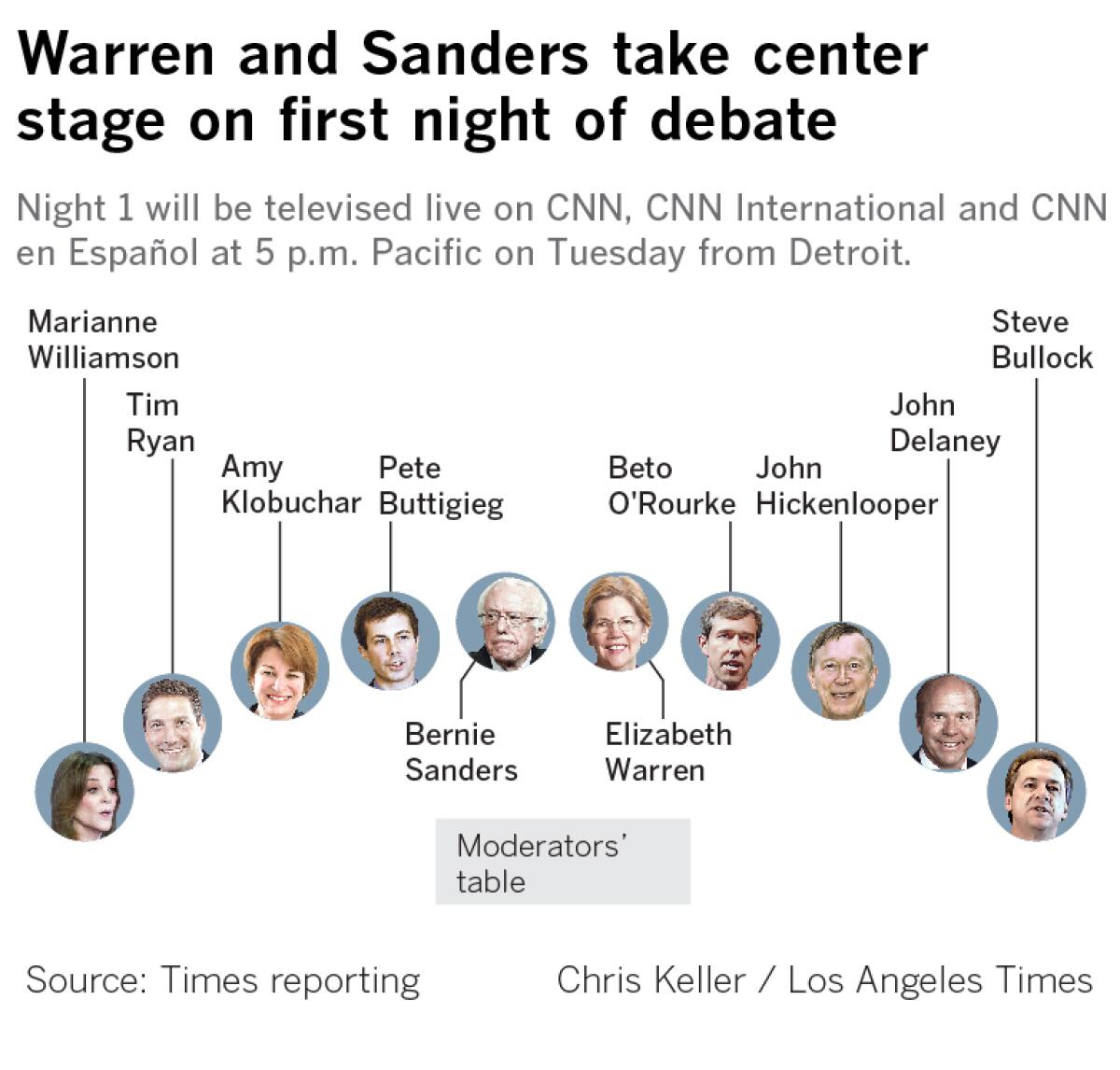
The other candidates appearing on stage Tuesday are Montana Gov. Steve Bullock; South Bend, Ind., Mayor Pete Buttigieg, former Maryland Rep. John Delaney; former Colorado Gov. John Hickenlooper; Minnesota Sen. Amy Klobuchar; former Texas Rep. Beto O’Rourke, Ohio Rep. Tim Ryan and spiritual self-help author Marianne Williamson.
CNN hosts Dana Bash, Don Lemon and Jake Tapper will moderate. Candidates will get 60 seconds to respond to questions and 30 seconds to make responses and rebuttals. The debate begins at 5 p.m. Pacific.
Democratic progressives Bernie Sanders and Elizabeth Warren slapped back against moderate rivals who ridiculed “Medicare for All” during a fierce Democratic presidential debate Tuesday night.Here are our 6 big takeaways from Night 1 of the debates in Detroit>>
Here are a few things to watch for:
1. Bernie Sanders and Elizabeth Warren are friends and competitors. Do they lay a glove on each other?
The two top-polling candidates on Night 1 are also the two representing the left wing of the Democratic Party, and they are in direct competition for the progressive votes likely needed to edge out a popular moderate candidate like former Vice President Joe Biden. (They’re also friends.)
Although Sanders and Warren have a similarly adversarial approach to Wall Street — and both believe in eliminating private health insurance in favor of the type of government-run programs implemented in other Western democracies — they have very different political philosophies. Warren has called herself a “capitalist to my bones” who usually believes that markets just need to be better regulated; Sanders sees democratic socialism as the solution to fighting authoritarianism and plutocracy.
A debate would normally be the kind of place where you’d see political candidates try to sharpen those sorts of differences, like how California Sen. Kamala Harris took on Biden over his position decades ago on busing for school desegregation in the last debate. But with so many candidates on the stage, Warren and Sanders could just as easily avoid each other if they don’t see an upside in picking a fight.
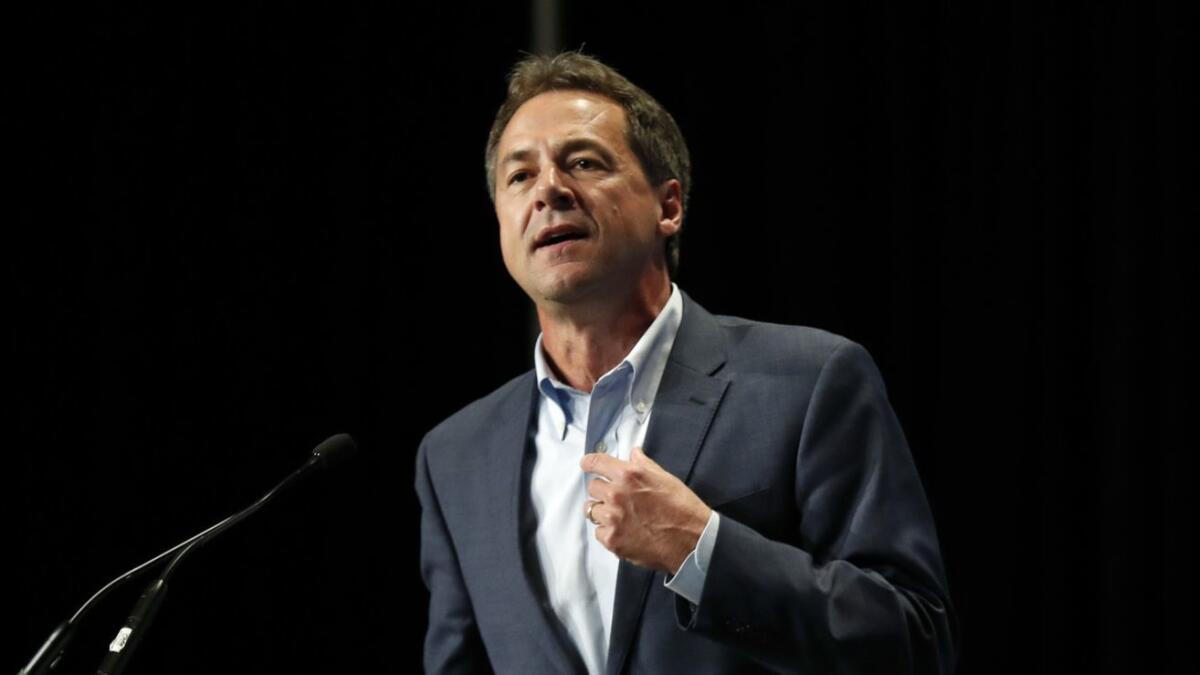
2. Steve Bullock finally gets his moment in the spotlight. What does he do with it?
Meet Montana Gov. Steve Bullock, who entered the race too late to qualify for the previous Democratic debate. He’ll be the single new face on the stage this week, taking the spot of Bay Area Rep. Eric Swalwell, who dropped out following the last debate.
For voters unfamiliar, Bullock is known nationally for a couple of things. First, he’s a Democrat and former Montana attorney general who has won two terms as governor in a state that Trump took by 20 points in 2016. Naturally, Bullock thinks this makes him a pretty good candidate to claw back moderate voters who swung for the Republican in the last cycle.
Secondly, Bullock has been known as a crusader for transparency in campaign-finance law, which includes signing a 2015 law requiring dark-money political groups to disclose what they spend on Montana races.
The good news for Bullock is that campaign-finance reform has been a hot-button issue for a lot of Democratic voters. The bad news is that a lot of the other candidates in the field have also picked up the issue — most notably Sanders and Warren.
3. Race has been one of the most combustible issues of the Democratic primary, but the candidates on this stage will all be white.
This year’s Democratic primary field is the most diverse it’s ever been, and apart from healthcare, some of the biggest splits in the Democratic electorate involve racial-justice issues and immigration. But by luck of the draw, all the candidates on the first night of this debate are white, which might limit some of the drama seen in the last round.
Detroit hosts the July Democratic debate. Some candidates have campaigned in nearby Flint, but the city’s struggles and water crisis haven’t been a focus.
Think back: The most memorable fireworks from the first night of the last debate involved former HUD Secretary Julián Castro, who is Latino, cornering fellow Texan O’Rourke, who is white, over O’Rourke’s knowledge of immigration policy. (And that was after both had showed off their occasionally clunky Spanish skills.) The next night, Harris, who is black, confronted Biden, who is white, over his history of opposing busing alongside segregationist senators in the 1970s by telling her own story of being bused as a girl in Berkeley.
Race is nonetheless likely to come up — especially in that the debate is being held in Detroit, and given President Trump’s recent attacks on four Democratic congresswomen of color — but this crowd of candidates may have to look elsewhere to sharpen their differences with each other.
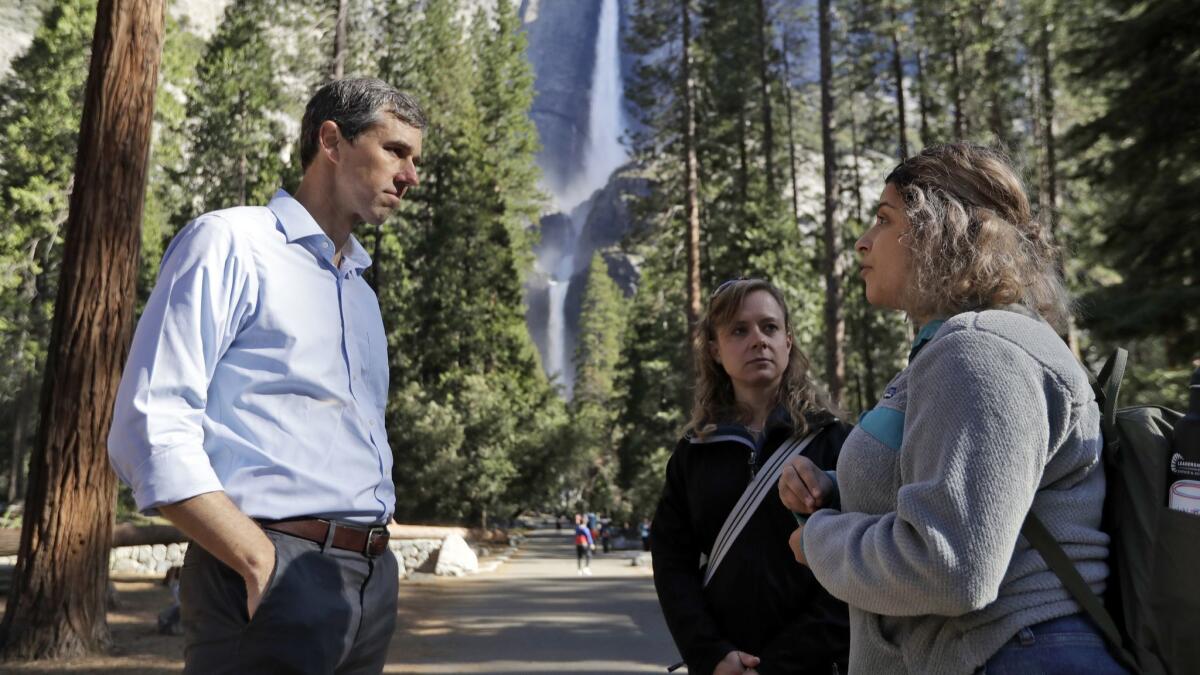
4. Can Beto O’Rourke pick himself up, and what would that even look like?
O’Rourke arrived on the campaign trail with a splash in April, with a Vanity Fair cover profile and a lot of national buzz following his close 2018 loss against Republican Ted Cruz for one of Texas’ U.S. Senate seats. But it’s been largely downhill from there, with O’Rourke’s poll numbers dipping from the 8% to 10% range to the 2% to 3% range.
Which raises a question: What role does O’Rourke play better than any other Democratic candidate? As Castro vividly illustrated (at O’Rourke’s expense) in the last debate, O’Rourke is not the only Spanish-speaking border-stater in the race; the glow O’Rourke originally had as the campaign’s freshest face has been claimed by even-fresher-faced Mayor Pete Buttigieg, whose relative rise in the polls corresponded with O’Rourke’s decline. O’Rourke’s ambitious climate-change proposal, the first such detailed plan in the field, was quickly crowded by other candidates’ similarly ambitious environmental planks.
If O’Rourke is going to try to catch the eyes of Democratic voters who feel like they’ve already gotten to know him, this debate would be the place to do it.
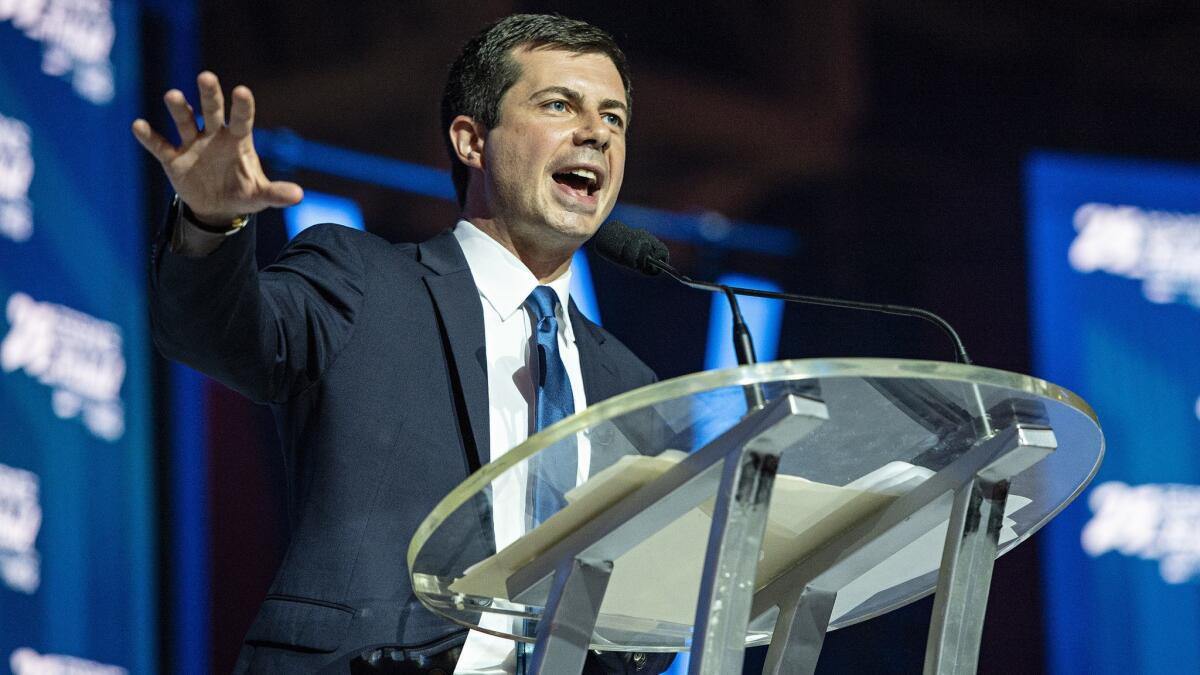
5. ... and can Pete Buttigieg stop himself from ending up in O’Rourke’s position?
Buttigieg is currently polling about 5% nationally, which is nothing to sneeze at. It’s better than several U.S. senators and governors in the race. It also means the youthful South Bend mayor has already cleared the bar to qualify for the next debate in September, helping ensure he’ll be relevant after the tighter qualification rules squeeze weaker candidates out of the race.
But the problem is that Buttigieg is only the fifth-most-popular candidate in a primary race that currently has four strong front-runners: Biden, Warren, Sanders and California Sen. Kamala Harris, who are each more than twice as popular on average. After benefiting from an O’Rourkean splash of friendly media coverage during his opening months in the race, Buttigieg has faced skepticism over his ability to win over black voters, which was only exacerbated by a controversial police shooting in South Bend in June.
That domestic crisis clearly wasn’t damaging enough to force Buttigieg out of the race. But he has also lost a couple points of support since then. Like O’Rourke, this debate will be one of his best chances to stopper any more losses.
6. Will any of the candidates bring up the mass shooting in Gilroy, Calif., to discuss their push for an assault weapons ban?
When it comes to gun control, the Democrats are largely in agreement these days when it comes to calling for a ban on military-style semiautomatic rifles, expanded background checks and taking guns away from high-risk individuals.
Most 2020 Democrats support universal background checks, “red flag” laws to take away guns from high-risk individuals, and bringing back a ban on “assault” weapons sale.
Most have condemned Sunday’s mass shooting in Gilroy, Calif., where a gunman killed three people — including two children — and have called for an expanded federal role in limiting gun purchases. Candidates or moderators might cite the latest mass shooting to discuss gun policies. The Gilroy gunman bought his AK-47-style rifle legally in Nevada, and then apparently illegally brought the gun into California, which has much stricter state-level gun laws. But citing a recent tragedy can carry risks, too, if people in the community or victims’ families disagree with the candidates’ statements.
7. This might be the last time you’re going to see some of these candidates.
After this debate, the criteria to qualify for the next debate in September get tighter, including a requirement for 130,000 individual donors and a 2% polling average. Bullock, Delaney, Hickenlooper, Ryan and Williamson are the candidates on Tuesday night’s debate stage who have not met either requirement, and it could be tough for them to justify keeping their campaigns going — and to persuade donors to keep donating — if they fail to meet those standards. So you might watch these candidates if they do something outside the box (translation: something desperate) in order to shake loose from the bottom of the pack.
More to Read
Get the L.A. Times Politics newsletter
Deeply reported insights into legislation, politics and policy from Sacramento, Washington and beyond. In your inbox three times per week.
You may occasionally receive promotional content from the Los Angeles Times.
